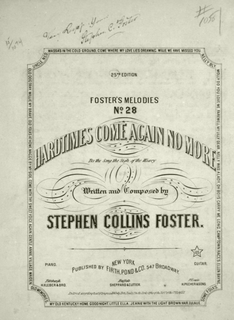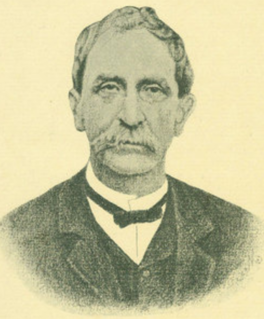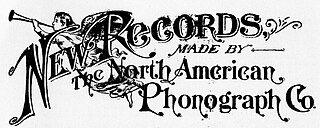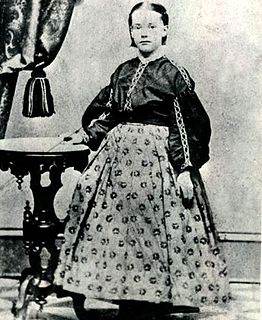
A phonograph, in its later forms also called a gramophone or since the 1940s called a record player, or more recently a turntable, is a device for the mechanical and analogue recording and reproduction of sound. The sound vibration waveforms are recorded as corresponding physical deviations of a spiral groove engraved, etched, incised, or impressed into the surface of a rotating cylinder or disc, called a "record". To recreate the sound, the surface is similarly rotated while a playback stylus traces the groove and is therefore vibrated by it, very faintly reproducing the recorded sound. In early acoustic phonographs, the stylus vibrated a diaphragm which produced sound waves which were coupled to the open air through a flaring horn, or directly to the listener's ears through stethoscope-type earphones.

Phonograph cylinders are the earliest commercial medium for recording and reproducing sound. Commonly known simply as "records" in their era of greatest popularity, these hollow cylindrical objects have an audio recording engraved on the outside surface, which can be reproduced when they are played on a mechanical cylinder phonograph. In the 1910s, the competing disc record system triumphed in the marketplace to become the dominant commercial audio medium.

Stephen Collins Foster, known also as "the father of American music", was an American composer and songwriter known primarily for his parlour and minstrel music during the Romantic period. He wrote more than 200 songs, including "Oh! Susanna", "Hard Times Come Again No More", "Camptown Races", "Old Folks at Home", "My Old Kentucky Home", "Jeanie with the Light Brown Hair", "Old Black Joe", and "Beautiful Dreamer", and many of his compositions remain popular today. He has been identified as "the most famous songwriter of the nineteenth century" and may be the most recognizable American composer in other countries. Most of his handwritten music manuscripts are lost, but editions issued by publishers of his day feature in various collections.

"My Old Kentucky Home, Good-Night!" is a sentimental ballad written by Stephen Foster, probably composed in 1852. It was published in January 1853 by Firth, Pond, & Co. of New York. Foster was likely inspired by Harriet Beecher Stowe's anti-slavery novel Uncle Tom's Cabin, as evidenced by the title of a sketch in Foster’s sketchbook, “Poor Uncle Tom, Good-Night!”
David Hall was a sound archivist and writer.

Arthur Francis Collins was an American baritone who was one of the most prolific and beloved of pioneer recording artists, regarded in his day as "King of the Ragtime Singers".

The Stephen Collins Foster Memorial is a performing arts center and museum which houses the Stephen Foster Archives at the University of Pittsburgh in Pittsburgh, Pennsylvania, USA. It is dedicated to the life and works of American songwriter Stephen Foster.
Fletcher Hodges Jr. was an American who curated the Foster Hall Collection, a collection of documents and music related to Stephen Foster at the University of Pittsburgh, for fifty-one years.

"Hard Times Come Again No More" is an American parlor song written by Stephen Foster. It was published in New York by Firth, Pond & Co. in 1854 as Foster's Melodies No. 28. Well-known and popular in its day, both in America and Europe, the song asks the fortunate to consider the plight of the less fortunate and includes one of Foster's favorite images: "a pale drooping maiden".

Albert Spalding was an internationally recognized American violinist and composer.

Actionable Offenses: Indecent Phonograph Recordings from the 1890s is a compilation of jokes and stories recorded to wax cylinders during the 1890s. At the time the recordings were made, they were considered indecent, and nearly all similar recordings from this era have been destroyed, often by law. The compilation was assembled by Patrick Feaster and David Giovannoni, and released on Archeophone Records, an archival reissue label, in 2007. It received two Grammy Award nominations.

Tim Brooks is an American television and radio historian, author and retired television executive. He is credited with having helped launch the Sci Fi Channel in 1992 as well as other USA Network projects and channels.

Morrison Foster was the older brother, business agent and biographer for Stephen Foster, a composer and lyricist of early American music. When Stephen Foster died at age 37, Morrison continued to manage Stephen's estate and acted as a mediator between music publishers and Stephen Foster's wife and daughter. Documents demonstrate his correspondence with publishers in his receipt of royalty payments on behalf of Stephen's heirs. Morrison also wrote the first biography of Stephen Foster. Morrison's daughter Evelyn Foster Morneweck, wrote a biography about her uncle, Chronicles of Stephen Foster's Family.
"Willie Has Gone To War" is a song written by Stephen Collins Foster sometime in 1862. It was considered a 'Civil War Song', though it was not as popular as some of his previous work. George Cooper wrote the lyrics. He may have composed up to 285 songs, hymns, arrangements and instrumental works during his lifetime. He also created many of the lyrics.

William Barclay Foster was the father of Stephen Foster and a notable businessman in his time. He has been referred to one of the most prosperous merchants of Pittsburgh, Pennsylvania. He was a Pennsylvania state legislator and served three terms. He was also elected mayor of Allegheny City twice in his lifetime. He has been identified as a "patriot", a "lover of home" and an "outstanding servant to his community, state and government". He married Eliza Clayland Tomlinson on November 14, 1807, in Chambersburg, Pennsylvania.

Jane Denny McDowell Foster Wiley was born December 10, 1829. She died at the age of seventy-three in a fire on January 17, 1903 in Pittsburgh, Pennsylvania.

The Darlington Collection is extensive collection of rare documents, maps, and other historical material focusing on early American history, particularly that of Western Pennsylvania. The original material is housed by the Archives Services Center (ASC) of the library of the University of Pittsburgh with digitized material available at the Darlington Digital Library. The collection was inherited by Darlington's daughters Mary O'Hara Darlington and Edith Darlington. The donation of the collection was first given to the University of Pittsburgh in 1918. The rest of the collection was donated in 1925.

The North American Phonograph Company was an early attempt to commercialize the maturing technologies of sound recording in the late 1880s and early 1890s. Though the company was largely unsuccessful in its goals due to legal, technical and financial problems, it set the stage for the modern recording industry in the mid 1890s.

Stephen Foster's sketchbook is the hand-written book authored by early American composer and lyricist Stephen Collins Foster. It spans a nine-year period beginning on June 26, 1851. It was donated to the University of Pittsburgh Library System by the Foster family in the early 1930s. The National History Education Clearinghouse considers it a " useful resource for those researching Foster or the history of 19th-century American music and culture."

Marion Foster was the only child of composer Stephen Collins Foster and, together with her daughter Jessie Rose, was the caretaker of the Stephen S. Foster Memorial Home located at 3600 Penn Avenue, Pittsburgh, Pennsylvania, from 1914 until her death in 1935. She taught the piano and occasionally composed music.


















